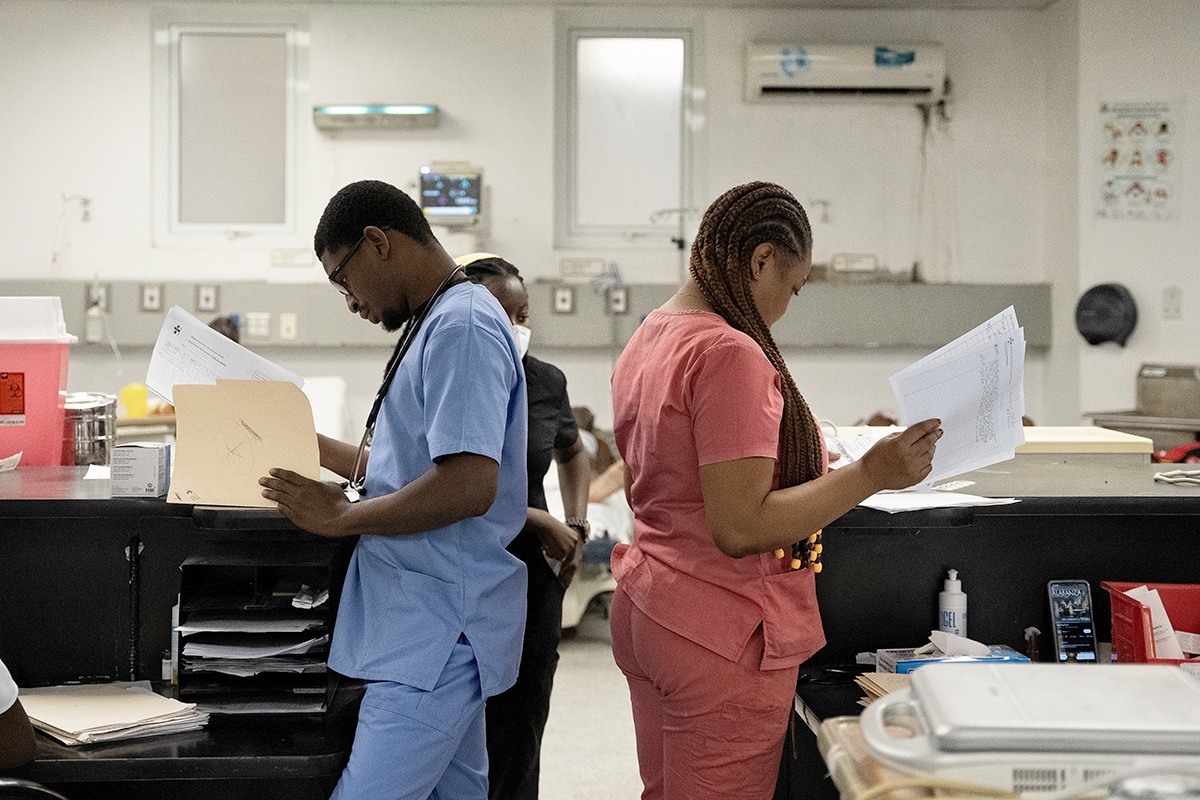Emergency Medicine Residency Earns International Accreditation in Haiti
Residency is the third to receive ACGME-I accreditation at Hôpital Universitaire de Mirebalais
Posted on Jun 20, 2024

The emergency medicine program at Hôpital Universitaire de Mirebalais (HUM), the first and only residency program of its kind in Haiti, was awarded accreditation last month for meeting international standards for institutional, foundational, and advanced specialty training. This is the hospital’s third medical residency program awarded accreditation by ACGME-I, the international arm of the U.S.-based Accreditation Council for Graduate Medical Education.
Zanmi Lasante (ZL), as Partners In Health is known in Haiti, began the emergency medicine program at HUM in 2014, largely to fill the gap in care laid bare by the 2010 earthquake, when many first responders came from outside the country. The residency extends over a three-year period and welcomes seven doctors each year.
Dr. Rachel F. Colinet was part of the first cohort of residents to graduate from the program in 2017. Now an instructor responsible for training residents, Colinet is moved by the full circle moment. “I don’t even have the words to express myself,” she said. “As a former student, I was really awaiting this accreditation and to receive it at this time when I occupy this position is more than prideful for me. It’s truly an achievement.”
HUM’s internal medicine and family medicine residencies were awarded ACGME-I accreditation in June 2023, making emergency medicine the third to receive this distinction. The hospital today offers nine residency programs in pediatrics, general surgery, obstetrics and gynecology, nurse anesthetist, emergency medicine, internal medicine, orthopedic surgery, emergency nursing, and family medicine as well as three fellowship programs in neurology, plastic and reconstructive surgery, and emergency ultrasound.
The ACGME-I accreditation involves a comprehensive peer review process that evaluates, improves upon, and publicly recognizes graduate medical education programs that meet the highest educational quality standards. To obtain this accreditation, program directors, faculty members, administrative staff, and residents all collaborated with a shared vision.
“It was necessary to prepare documents, revise training schedules, work on policies and procedures, evaluate residents and submit specific data,” explained Colinet. “It was very stressful, but we learned a lot from the process.”
Haiti continues to face a widespread crisis where a multitude of problems have dramatically increased poverty and made access to health care even more challenging. “At this difficult time when there are few resources and where there is a serious brain drain, this accreditation restores the image of the homeland in terms of healthcare,” explained Dr. Ornella Sainterant, Zanmi Lasante’s divisional director of training for development and medical education. For Sainterant, this third accreditation is a sign of continuity in the work started by Dr. Paul E. Farmer, co-founder of Partners In Health, and others who believed that providing healthcare was a means to social justice. “To provide quality healthcare, you need quality medical training.”

